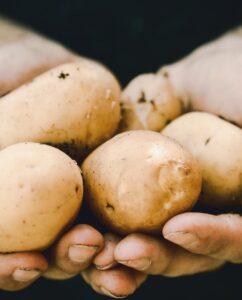Aug 21, 2023CFIA completes potato wart investigation, finds 4 additional affected PEI fields
The Canadian Food Inspection Agency has completed its investigation into potato wart in Prince Edward Island ahead of the September 2023 target date, finding potato wart in four fields in addition to the two 2021 detections that closed the U.S. border and sparked the probe.
The CFIA analyzed nearly 50,000 soil samples from PEI fields associated with recent detections, according to a statement on the organization’s website. The finding of potato wart in four additional fields “is expected in investigations of this scale,” according to the statement.
“The risks associated with the transmission of potato wart from fresh potatoes from PEI remain negligible when appropriate risk mitigation measures are in place and followed,” according to the statement.

In the four cases, and whenever potato wart is detected, land controls are imposed on individual fields to restrict the movements of potatoes and soil that could spread potato wart, CFIA said. The agency will continue to monitor PEI potato fields throughout the fall, including fields not previously associated with potato wart.
The six affected fields had been under CFIA surveillance, meaning the potatoes were farmed solely for on-Island processing facilities. A federal ministerial order, which restricts shipments of seed potatoes off-island, remains in place.
Potato wart causes unsightly cauliflower-like growths on potatoes but poses no human health risk.
After the initial 2021 detection, an estimated 240 million pounds of potatoes were destroyed. Imports of fresh potatoes to the U.S. resumed in April 2022.
In a statement on Aug. 18, federal Agriculture Minister Lawrence MacAulay praised the results of the CFIA investigation.
“As a proud Islander and a former potato grower myself, I understand that the past couple of years have been challenging for our potato growers, packers, processors, and shippers,” MacAulay said a statement emailed to Saltwire. “I’m pleased that the investigation into the two potato wart detections from 2021 is now complete and we can focus our efforts on next steps.”
Others sounded a less optimistic note. While welcoming news of the “important step” of the soil sampling investigation, National Potato Council CEO Kam Quarles warned of potential consequences if planting continues in the affected fields.
“As the positive soil tests indicate, potatoes (potato wart host material) continue to be planted in known wart-infested fields,” Quarles said in the statement. “This practice needs to end as it perpetuates the disease and makes it likely to spread to other fields and farms through normal farming, transportation, processing, and waste disposal activities.”
Quarles cited an October 2022 report (.pdf) from the USDA’s Animal Plant Health Inspection Service which concluded the extent of the PEI wart infested was likely larger than reported.
“Ten months have passed since APHIS released that comprehensive report. Nine months have passed since CFIA first announced its intention to provide enhanced phytosanitary security for potato wart and modernize its Potato Wart Long-Term Management Plan,” Quarles said. “During this time, potatoes from PEI continue to be shipped to the U.S.
“Without additional mitigation measures in place, that October 2022 USDA APHIS report states that it is a question of ‘when’ not ‘if’ PEI potato wart will spread to the United States. The consequences of continued inaction increase the likelihood that dire phytosanitary and economic hardships will be felt by the entire North American potato value chain.”














